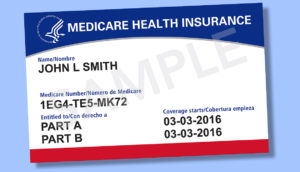 Today’s top story: Need cash? Your brokerage account may offer a handy solution. Also in the news: 5 tools to make your remote-work business click, how to chop remodeling costs when wood prices are high, and how to stop a gym from charging your card after canceling your membership.
Today’s top story: Need cash? Your brokerage account may offer a handy solution. Also in the news: 5 tools to make your remote-work business click, how to chop remodeling costs when wood prices are high, and how to stop a gym from charging your card after canceling your membership.
Need Cash? Your Brokerage Account May Offer a Handy Solution
A securities-based line of credit, or SBLOC, could help tide you over when purse strings are tight.
5 Tools to Help Your Remote-Work Business Click
Creating a remote-work environment has its challenges. These resources can strengthen your telework arrangement.
How to Chop Remodeling Costs When Wood Prices Are High
Use recycled materials, allow for flexibility and carefully budget to avoid overpaying for your remodel project.
How to Stop a Gym From Charging Your Card After Canceling Your Membership
A step-by-step guide on resolving a disputed gym charge.
 Today’s top story: What to do if your home insurer won’t renew your policy. Also in the news: A new episode of the SmartMoney podcast on job scams and maxing out a Roth IRA, how to hand mixed-income friendships, and student loan payments come back for real Feb. 1st.
Today’s top story: What to do if your home insurer won’t renew your policy. Also in the news: A new episode of the SmartMoney podcast on job scams and maxing out a Roth IRA, how to hand mixed-income friendships, and student loan payments come back for real Feb. 1st. Today’s top story: Should you pack your COVID-19 vaccine card for your next trip? Also in the news: A Travel Nerd on Basic Economy, 4 cash-raising pitfalls, and what to do if you haven’t received your child tax credit.
Today’s top story: Should you pack your COVID-19 vaccine card for your next trip? Also in the news: A Travel Nerd on Basic Economy, 4 cash-raising pitfalls, and what to do if you haven’t received your child tax credit. Today’s top story: 7 ways to manage Medicare drug costs. Also in the news: Prep for hiring your first employee with these 6 steps, how to have a retirement worth saving for, and how to buy and sell a house at the same time.
Today’s top story: 7 ways to manage Medicare drug costs. Also in the news: Prep for hiring your first employee with these 6 steps, how to have a retirement worth saving for, and how to buy and sell a house at the same time.